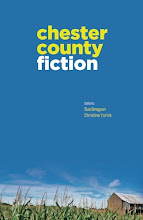Writer Larry L. King has passed away. He'd been living and working for years in Washington, D.C. But he was a Texan born and bred, and one of the great characters of the Lone Star State
Even if you never heard of him, you've probably heard of his most famous piece of work: the Broadway musical Best Little Whorehouse in Texas. He got a credit for the book on that one, but his history with this (mostly) true story went back to 1974, when he wrote an article about the closing of one of Texas's most famous whorehouses, the Chicken Ranch, for Playboy Magazine.
If you don't know the story, here's the basics: while prostitution was illegal in Texas by the 1970s, there were still plenty of whorehouses around. One of the most famous ones was located outside La Grange, Texas - halfway between Austin and Houston. It was called "The Chicken Ranch" because during the dark days of the Great Depression, they would accept chickens or other livestock in lieu of cash.
Everyone seemed to know about the Chicken Ranch; it's clientele included football players from the University of Texas and politicians from the state capital, Austin. In his Playboy article, Larry L. King claimed that many politicians could drive from Austin to the Chicken Ranch “without headlights even in a midnight rainstorm.”
But in 1973, a crusading Houston television reporter - KTRK's Marvin Zindler - broke the story on air. Despite the support of the local county sheriff, the public embarrassment forced the government to close the Chicken Ranch for good. When Zindler encountered that county sheriff, the lawman broke two of Zindler's ribs and tore off his white bouffant toupee!
(I lived in Houston for about seven years, and I recall Zindler well. Every Friday he broadcast the Houston Health Department inspections of local restaurants in what Zindler called his "rat and roach reports." He loved to bellow, "And there was SLIIIIME in the ice machine!")
In 1978, King's Playboy article on the Chicken Ranch was made into a very successful Broadway musical. It was radically altered into the 1982 film version starring Dolly Parton and Burt Reynolds. King hated the film, but it helped make him financially independent.
Of course, these three events - the Playboy story, the Broadway musical, and the movie - took up only a fraction of Larry L. King's career. (Four things, actually: King released a collection of articles on the entire affair in 1982 called "The Whorehouse Papers.") I'll talk about the rest of his career in my next post.


